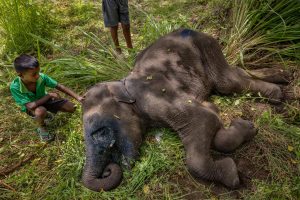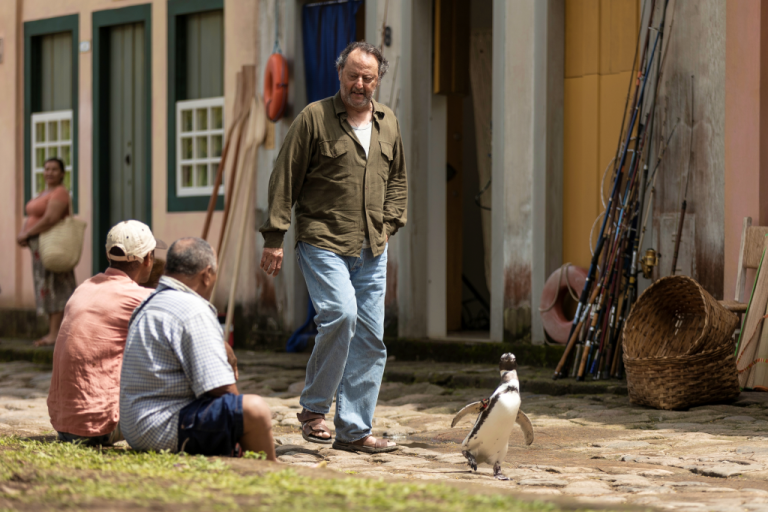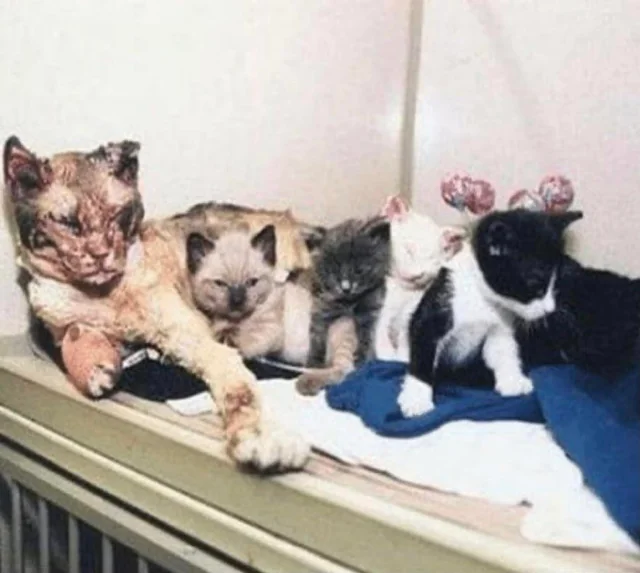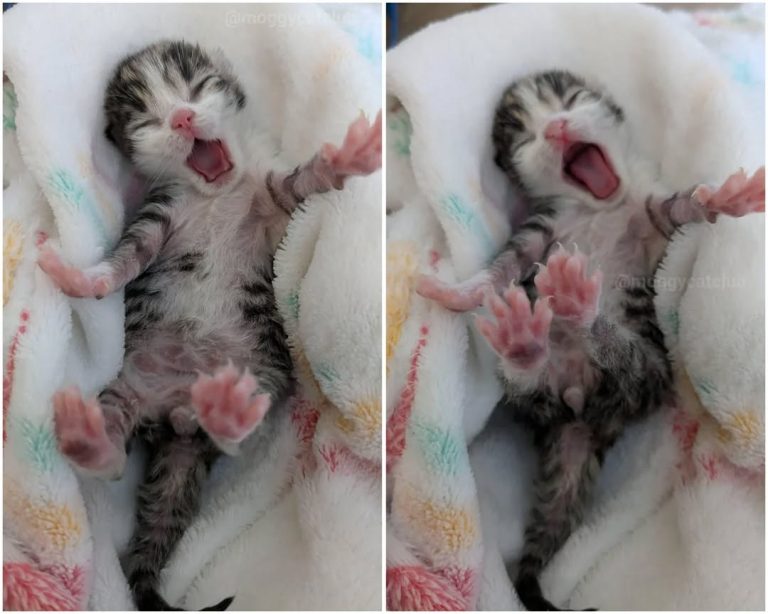He Carried His Blind Brother for Miles—The Story of Two Orphaned Elephants
Deep in the vast plains of Kenya’s Tsavo National Park, under a blazing African sun and skies filled with vultures, a remarkable journey was quietly unfolding—one not witnessed by many, but powerful enough to remind us of the raw strength of love, loyalty, and sacrifice.
It began with a tragedy that would change two young elephants’ lives forever.
They were brothers—Jabari and Kito—born just two years apart in a tight-knit elephant herd that roamed the grasslands freely. Their mother was a matriarch, a wise and strong leader who guided her family through droughts, predators, and the encroachment of poachers. Jabari, the elder, was playful and adventurous. Kito, the younger, was born partially blind and relied heavily on his family—especially Jabari—to navigate the wild.
But one fateful morning, everything changed.
Poachers struck under cover of darkness, drawn by the promise of ivory. Gunshots shattered the stillness, and in the chaos, elephants scattered. When the dust cleared and silence returned, the two young brothers were alone—and orphaned.
Jabari stood over their mother’s still body, his massive ears trembling. Kito stumbled beside him, confused and frightened, unable to see the full horror but sensing the fear in his brother’s breath.
They waited for their herd to return. But it never did.
The Road Begins
For days, Jabari led Kito through the bush, away from the site of the attack. With no understanding of where safety lay, he relied on instinct. The two walked slowly—Jabari always slightly ahead, guiding Kito with soft rumbles and nudges of his trunk. When Kito stumbled on roots or rocks, Jabari would stop and wait, sometimes doubling back to gently push him forward again.
Elephants, like humans, grieve. And Jabari was grieving.
But he didn’t stop.
Not when the sun scorched their backs. Not when their feet blistered on rough terrain. Not even when hunger set in and water became harder to find.
For over 15 miles, Jabari carried the emotional weight of their loss and the physical burden of his brother’s blindness. In the most difficult stretches, when Kito could no longer walk due to exhaustion or injury, Jabari would press his head under his brother’s body and lift him partially with his trunk—supporting him as they trudged forward together.
This wasn’t learned behavior. No one had taught Jabari to care for Kito this way.
It was love.
Raw. Instinctual. Unwavering.
A Lucky Encounter
It was near the 16th day of their journey that they were spotted by a team from the David Sheldrick Wildlife Trust, one of the world’s most respected elephant rescue and rehabilitation organizations.
The rescuers had been tracking signs of orphaned calves reported by local herders. They found Jabari and Kito near a dried-up riverbed—dehydrated, weak, and barely clinging to consciousness.
At first, the calves resisted the rescuers’ approach. Jabari placed himself between Kito and the humans, trumpeting weakly, ears flared in protective defiance. It took hours of quiet observation and coaxing before Jabari allowed them close enough to help.
When the rescue vehicle finally drove off toward the sanctuary, the two brothers huddled together in the back—traumatized, yes, but alive.
Rebuilding in the Sanctuary
At the Nairobi Elephant Nursery, the staff worked around the clock to stabilize the brothers. Jabari had severe foot injuries from walking long distances, and Kito suffered from malnutrition, a minor eye infection, and emotional trauma.
But what amazed the caretakers most wasn’t the brothers’ injuries—it was their bond.
Jabari would not eat unless Kito was beside him. He would sleep only when Kito’s trunk was wrapped around his. He followed caretakers with suspicion, always keeping himself between Kito and any perceived threat.
Kito, in return, trusted Jabari entirely. He refused milk from anyone unless Jabari first tasted it. He listened for his brother’s footsteps and rumbles before daring to walk forward. Together, they healed.
And slowly, they began to trust again.
The Heart of Elephant Brotherhood
Elephants are among the most intelligent and emotionally complex animals on the planet. They experience grief, empathy, joy, and even post-traumatic stress. Their families are their lifelines, and their bonds—especially between siblings—can last a lifetime.
What Jabari and Kito displayed wasn’t just a reaction to trauma. It was an expression of the purest loyalty—a brother who chose to carry the burden of survival not just for himself, but for the one he loved.
In the sanctuary, caretakers often watched Jabari help Kito adjust to his limited vision. If they introduced a new environment, Jabari would walk Kito around the perimeter, gently touching different areas to show him where to step and where to be cautious.
When other young elephants approached, Jabari remained watchful, never allowing Kito to be bullied or excluded. Over time, other orphans accepted them, and Kito learned to play with the herd—sometimes guided by the sounds of laughter-like trumpets and other calves who helped him navigate.
But Jabari was always near.
Always ready.
Always present.
A Future Together
As years passed, both elephants grew stronger. Kito’s blindness remained, but he adapted. Jabari matured into a natural leader—calm, assertive, and fiercely protective. The sanctuary staff knew they were witnessing something rare: not just survival, but transformation through unconditional love.
Eventually, the team prepared the brothers for reintroduction into the wild—a process that can take years. Jabari and Kito were transferred to a protected release site, where rescued elephants are gradually reintroduced into larger herds in the wild.
Even in the wild, Jabari stayed close to Kito. They became known to rangers as a “two-elephant unit”—never seen apart, always walking side-by-side.
Some nights, rangers have observed them standing under the stars, trunks draped over each other’s backs, swaying gently.
It’s easy to humanize them—but perhaps the truth is, we should hope to be more like them.
Epilogue: What We Learn From the Wild
The story of Jabari and Kito is not just about elephants. It’s about the kind of love that transcends hardship, that carries another’s burden even when your own heart is breaking.
It’s a story about resilience, brotherhood, and the incredible instinct to protect what we cherish most.
We live in a world where compassion is often seen as weakness, where we’re told to fend for ourselves and keep moving. But Jabari—a young, orphaned elephant with no map and no guide—taught us otherwise.
He taught us that strength isn’t in how far you can go alone.
It’s in how far you’re willing to carry someone else.
A Legacy in the Dust
Today, Jabari and Kito roam free in a protected elephant corridor in southern Kenya. Though their mother’s life was stolen by cruelty, their bond became a beacon of hope. Their journey reminds us that even in the wildest places, love is alive and well.
In the dust of the savannah, two sets of footprints often travel side-by-side—one sure, one uncertain.
And together, they move forward.
Always together.






